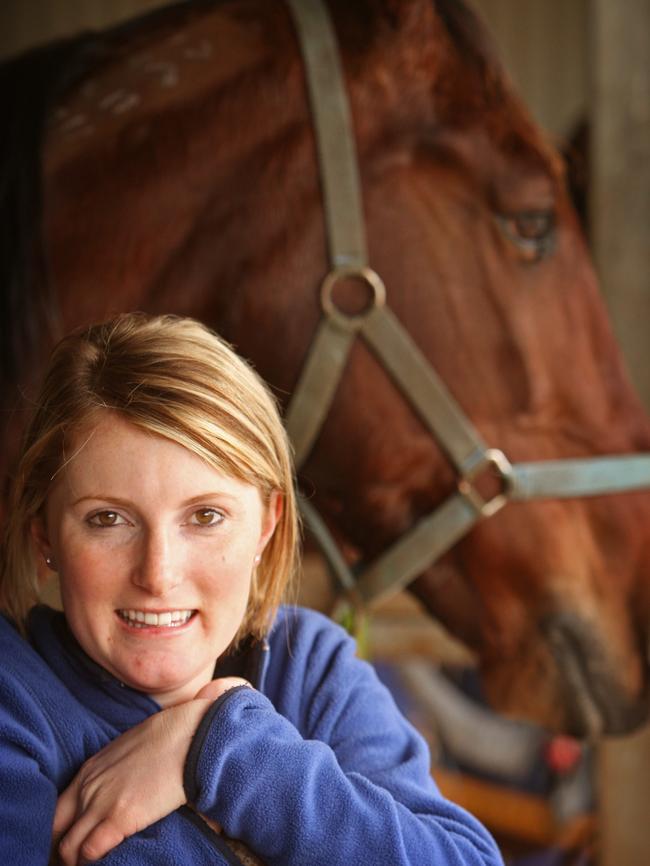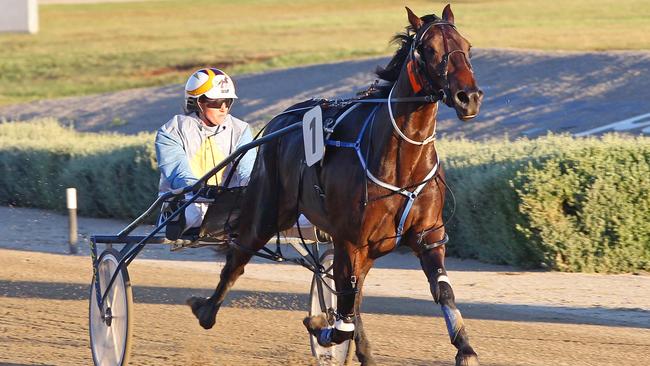Ellen Tormey learns fate after lengthy court proceedings into her breach
A trainer who took a horse to race with prohibited substances in its system has managed to reduce their ban.

Leader
Don't miss out on the headlines from Leader . Followed categories will be added to My News.
A trainer and driver who took a horse to race with prohibited substances in its system has been successful in arguing for the severity of her penalty to be scaled back.
Harness racing trainer Ellen Tormey was charged with breaching the Australian Harness Racing Rules when one of the horses she trained, Fremarksgonzo, was presented to race in Mildura with alkalinising agents in its system on April 13, 2019.
She pleaded guilty early and received a penalty from the Harness Racing Appeals and Disciplinary Board in December the same year.
According to VCAT documents, this occurred at the same time as a penalty was handed down for an unrelated charge concerning her involvement in the alleged stomach-tubing of horse, The Boss Man, within 48 hours of it racing at Melton on December 1, 2018.
Tormey was disqualified for 18 months for the The Boss Man charge and 12 months for the breach concerning Fremarksgonzo.

With six months of the latter penalty to be concurrent with the first, it became an effective disqualification period of two years.
Ms Tormey appealed this decision by taking her case to VCAT, seeking a review of the guilty finding relating to The Boss Man as well as the penalty imposed relating to the elevated TC02 level found in Fremarksgonzo.
The penalty she was handed for Fremarksgonzo was deferred until the review of the stomach-tubing charge was completed, the documents state.
After three and a half years of appealing the stomach-tubing penalty in various courts, it was withdrawn and dismissed on July 25, 2022.
During the subsequent VCAT proceedings HRV submitted the original 12 month disqualification for the drug charge should be upheld, but Ms Tormey argued for a suspended suspension with 49 days served – time not covered by stay orders during the years of court proceedings.
HRV argued horses presented to race with illicit substances in their systems “undermined” the industry.
“Competition needs to be on a level playing field, and not influenced by drugs. People must have confidence that when they place a bet on a horse, it will contest the race on its merits,” the documents read.
It also submitted Ms Tormey had been given a warning about the same substance being detected in Fremarksgonzo in August 2018 following a race at Charlton.
It submitted the warning given eight months beforehand, in addition to the “very high” reading detected in 2019, warranted disqualification.
But Ms Tormey argued she had no relevant prior breaches during her time as a licenced driver and trainer.
Character references described her love of horses and her standing in the community, while others referred to her distress at the charges and “the force of the lesson she has learned”.
Submitting the delays had impacted her emotionally and financially, Ms Tormey added that a disqualification would mean she would not only be banned from training and driving horses, but also unable to work in her role at the horse racing supplier, Garrards, located at the Bendigo track.

This is because disqualification would mean she would be banned from associating or communicating with people connected with the harness racing industry or to enter a racecourse.
In making his finding, VCAT Senior Member Jonathan Smithers considered the importance of deterrence of such behaviour in the racing industry weighed against the mitigatory factors.
“In my view, the very significant delay and disruption to her operations as a trainer over the last three and a half years, and over the last two years in particular, is an important factor.
“While she has been allowed to train horses, she has generally been restricted to doing so on financially disadvantageous terms—mostly for family members, and certainly not on the same commercial basis as she operated before.
“So in practical terms, she has already experienced restrictions on her ability to operate, over a significant period, even while the disqualification has been stayed.”
He concluded a 12-month suspension was more appropriate than disqualification as a result and decided to suspend eight months of the sentence – though she must not commit any further “serious offences”.




